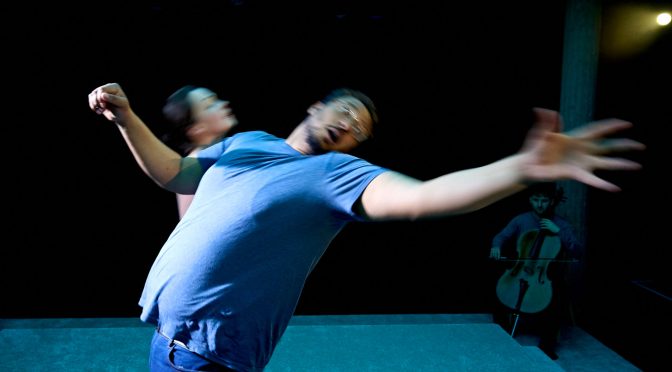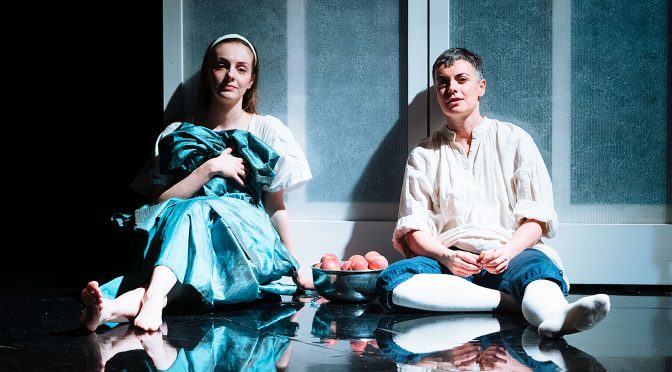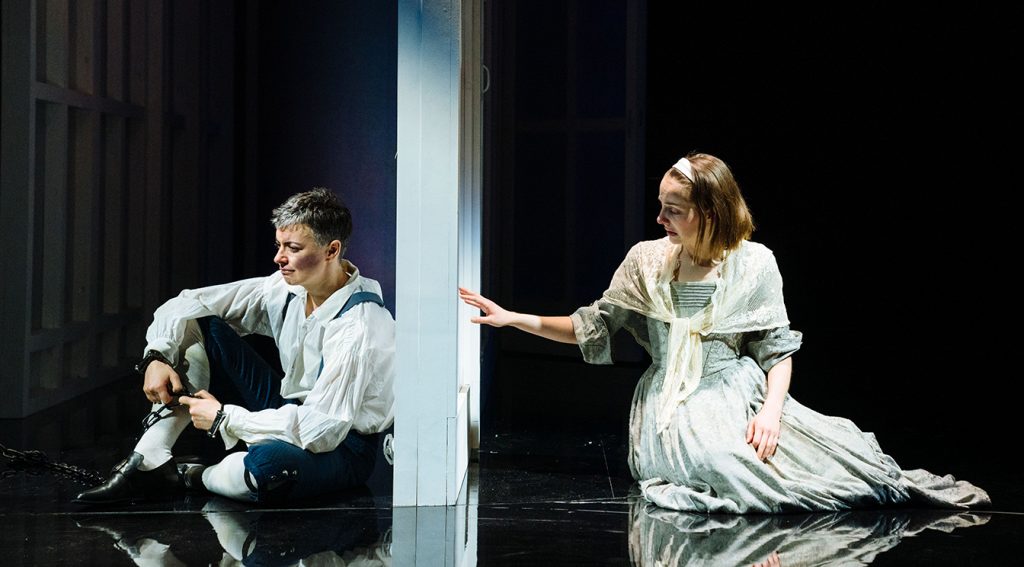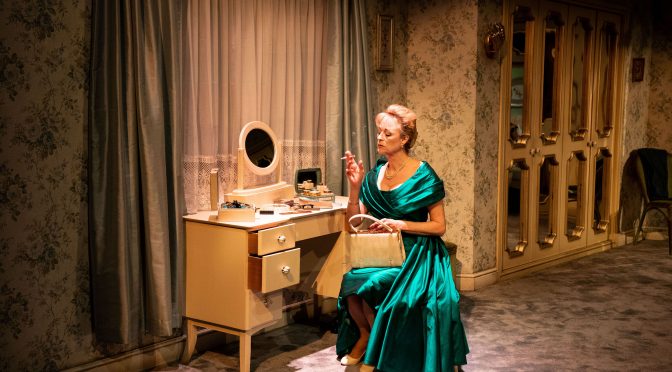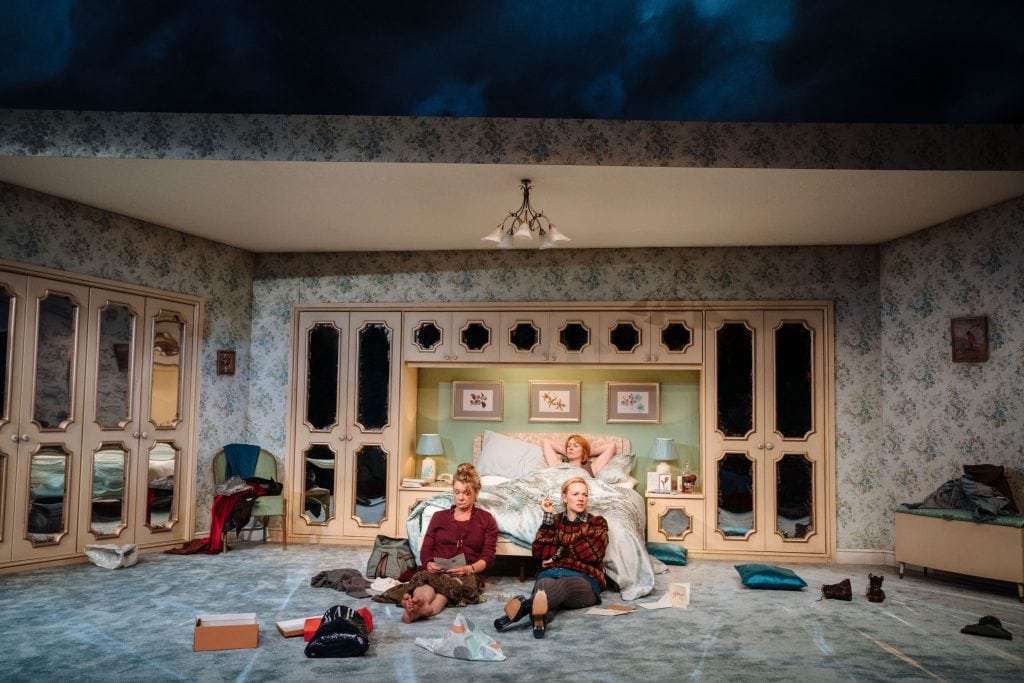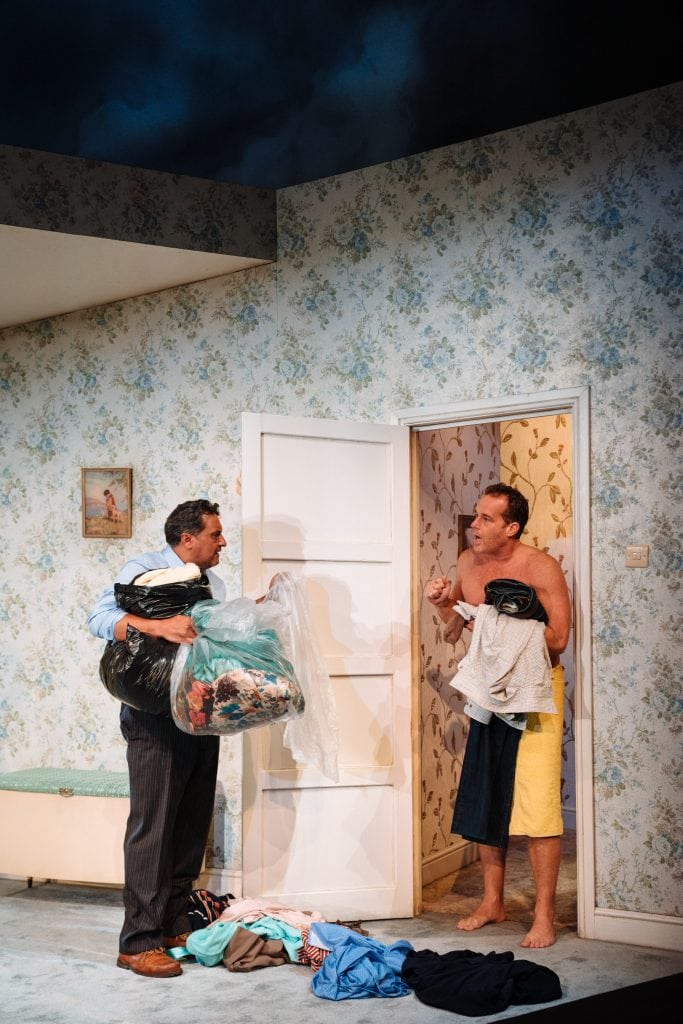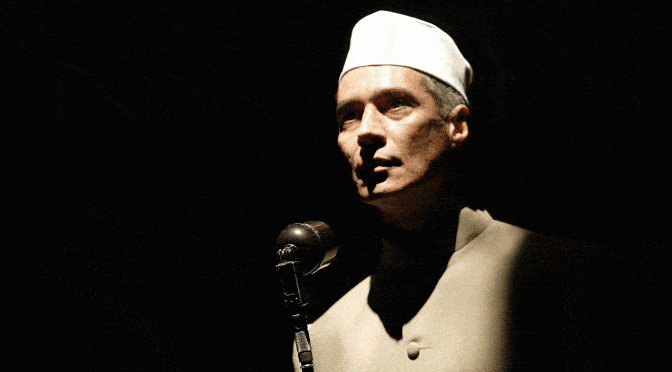Parenting, with a focus on fatherhood, is the subject of this new play written and directed by Bijan Sheibani. Intense and poetic, it sees a trio of brilliant actors examine emotions and experiences around having a child.
Ash and Anya are new parents. Overwhelmed by their love for little Louie, the everyday dramas – around grandparents or restarting a sex life – are overshadowed by bigger issues. Sheibani handles tension with subtlety, as do Irfan Shamji and Eileen O’Higgins, who take the roles and are convincing as being sleep deprived and on the edge. There’s a continual refrain that problems are not a big deal. So when arguments escalate, the atmosphere is especially fraught.
Ash’s status as a new father – indeed his whole life – seems overshadowed by his mother, Jane, who suffered from post-natal depression. Again, there is a surface calm, brilliantly portrayed by Lucy Black. But any pretended ease – over not seeing her grandchild or worrying for her own son – is effortful. When the arguments really start, there are painful home truths. Black’s performance is controlled and powerful.
All the emotion is emphasised by the composer and cellist Colin Alexander, who joins the actors, his harmonics echoing the action brilliantly. Oliver Fenwick’s lighting design is also strong, with a huge light box overhead subtly shifting colours. The whole production is stylish, with a heightened air, but it’s a shame some of the miming isn’t better.
Jane doesn’t have a lot of time for the possibility that Ash might be suffering. Does the audience? It’s a further tribute to Shamji’s performance that his character has appeal (although I wonder how much responses to the role depend on whether or not you’ve given birth). Ash does seem to want the focus of the women to return to him. And that’s hard to get past.
There’s another problem that might prove increasingly annoying… Ash’s Dad is around – he is mentioned several times and the two talk. It seems odd that Ash doesn’t speak to his own father about fatherhood. At least, there might be an explanation as to why this conversation doesn’t happen. It’s a stumble in such a detailed, focused work. The script is so skilful, I’ve no doubt the decision is deliberate, but it seems such a glaring omission that it skewers the whole play.
Until 25 May 2024
Photos by Manuel Harlan

